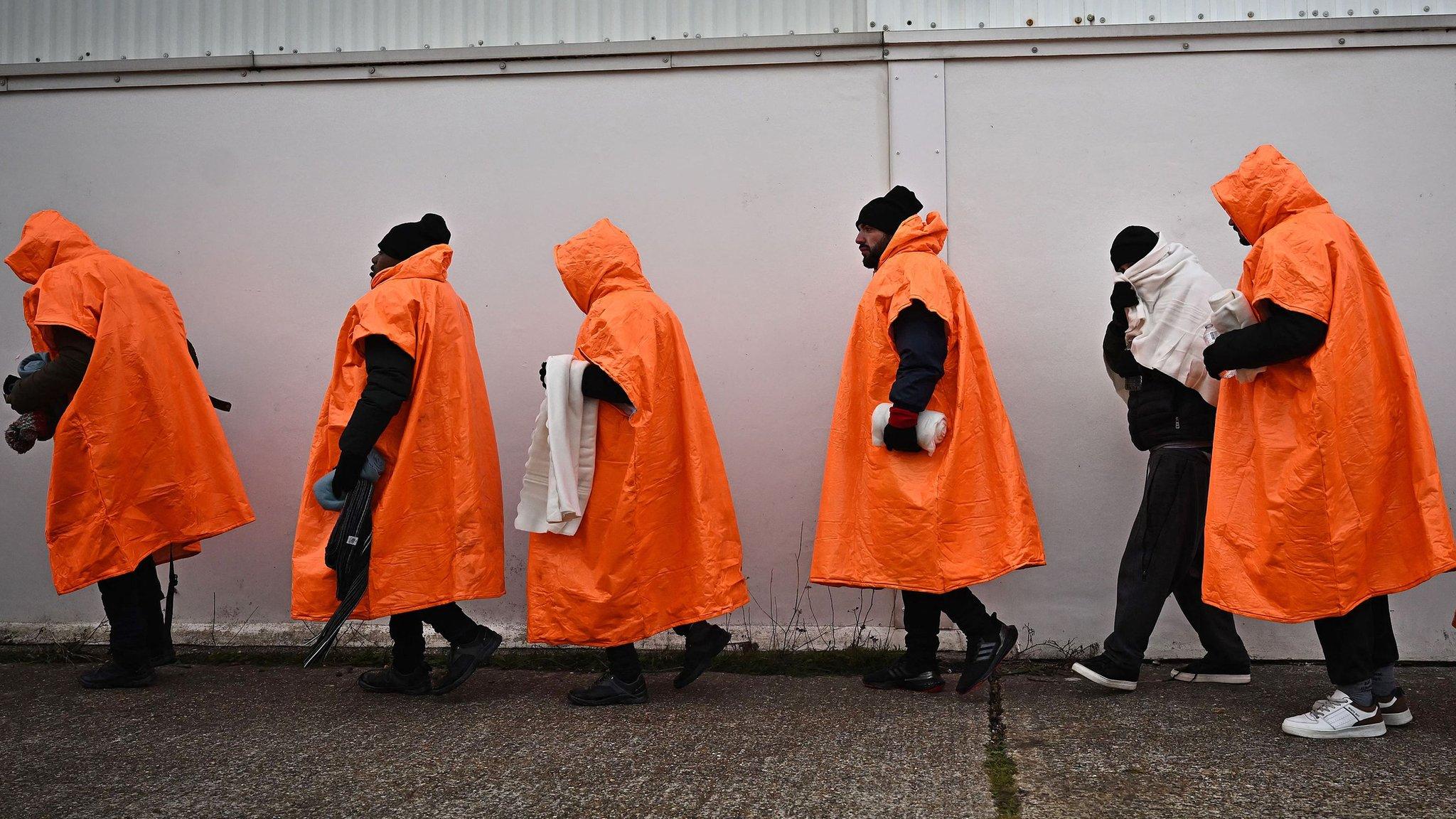Rwanda asylum seekers: 'Fighting to survive'
- Published
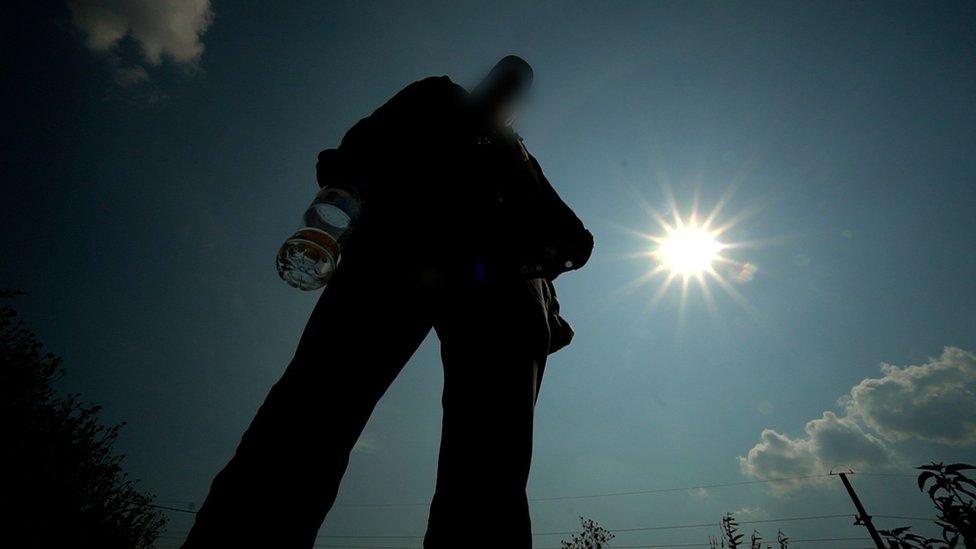
The BBC is not disclosing the identity of Mohammed, an asylum seeker in Rwanda
"I'm fighting just to survive," a nervous looking man tells me in a slightly trembling voice.
We're standing on a patch of wasteland in Rwanda's capital Kigali. It's surrounded by trees to hide us from prying eyes.
Mohammed came to this country seeking asylum. He says he fled to Rwanda from Ethiopia, where he had been taking refuge until agents from his home country attempted to kidnap him.
Mohammed says life in Kigali has been difficult, but he is so scared of reprisals for speaking to a journalist that he's asked me not to disclose his real name or the name of his home country, except that it is in Africa.
For days we've been trying to get an asylum seeker living in Rwanda to speak to us on the record. Time and again people agree, and then mysteriously become unavailable, often after being visited by a "community leader".
"I've asked for asylum," Mohammed tells me.
"The authorities don't say no, but everything is 'tomorrow', or 'come back next month'. It's been almost one year that they haven't given it to me."
I had been speaking to Mohammed as the High Court in London was considering the legality of the UK government's controversial plan to send some asylum seekers to Rwanda.
Earlier on Monday, the judges ruled that the UK government's policy is lawful and any relocations there would be "consistent with the (UN) Refugee Convention", although the cases of eight individual asylum seekers had not been properly considered.
The UK government believes the prospect of being sent to Rwanda to have asylum cases processed will act as a deterrent to people crossing the English Channel on small boats.
But opposition critics say the policy is cruel, unworkable and expensive.
Previously, campaign group Human Rights Watch (HRW) had expressed concern about conditions in Rwanda saying there was "repression of free speech, arbitrary detention, ill-treatment, and torture, external".
In its assessment published earlier this year, external, the UK government had said that "notwithstanding some restrictions on freedom of speech and/or freedom of association" it was unlikely that someone being relocated from the UK would face ill-treatment.
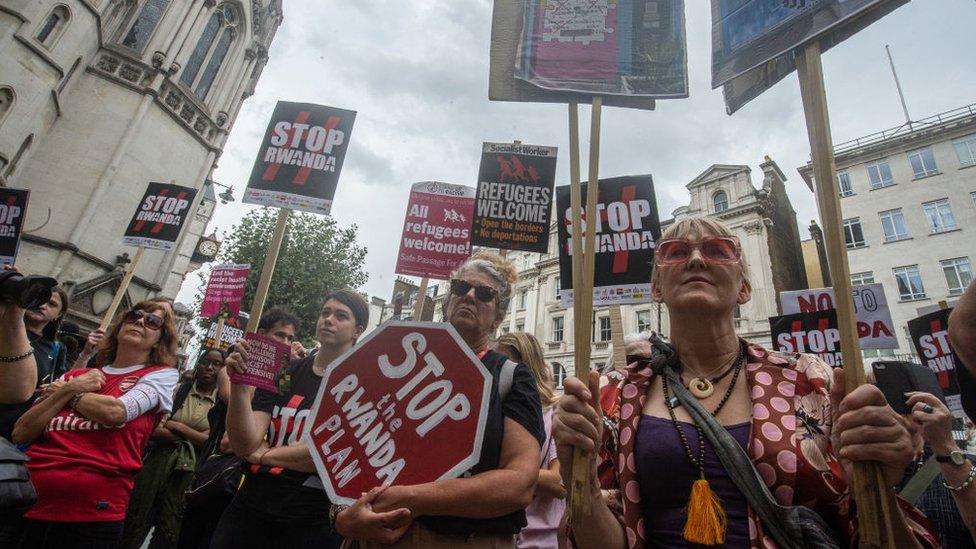
The plan to send asylum seekers to Rwanda has proved controversial in the UK
The United Nations' refugee agency had told the court that Rwanda lacked the "minimum components for an accessible, reliable, fair and efficient asylum system".
It was concerned that people could be sent back to countries where they face torture.
And in a report in June the UN agency said that "the efficiency and timeliness of the asylum procedure is of concern, with decisions taking up to one to two years to be issued in some cases".
Mohammed says he feels like his life is in limbo. He is unable to work legally because he doesn't have proper papers.
"Friends and relatives help," he tells me, adding that odd jobs give him a little income.
But with a wife and children to support, the uncertainty is taking its toll.
He says he'd like to leave Rwanda, and go "anywhere there is peace, like Canada or Australia".
Among the concerns raised by campaigners opposed to the UK plan is the treatment of LGBT people in Rwanda.
Unlike in some neighbouring countries, homosexual acts are not illegal in Rwanda. But in an open letter to the UK Home Office, HRW said that "in practice, lesbian, gay, bisexual, and transgender people face stigma in Rwanda".
In 2021, it documented how the authorities "arbitrarily detained, harassed, insulted and beat" nine transgender or gay people at Kigali's Gikondo Transit Centre, an unofficial detention facility, HRW said.
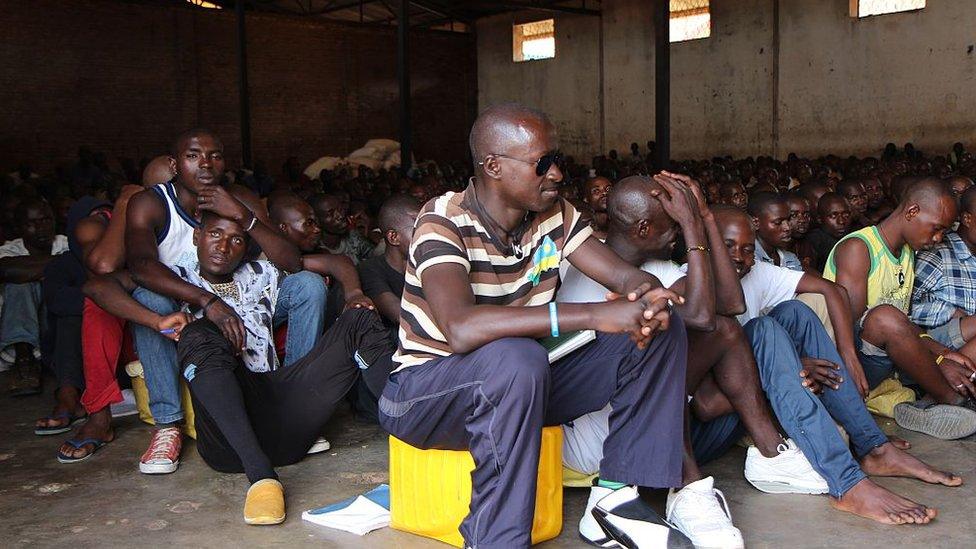
HRW has criticised the Gikondo Transit Centre in Rwanda's capital, shown above in a file photo
"Those interviewed said they had been targeted due to their sexual orientation or gender identity and treated worse than other detainees. Police officers or guards accused them of being homeless, thieves, or delinquents and held them in a room reserved for "delinquent" men, the campaign group said.
One person who understands the stigma associated with homosexuality in Rwanda is Patrick Uwayezu.
He's a gay member of the Evangelical Church of God in Africa in Rwanda, the only one in Kigali which welcomes LGBT members.
A slight man, with a powerful singing voice, he leads the choir on the Sunday that we visit the church.
Afterwards he tells me that LGBT people often find it difficult to access services such as healthcare because of attitudes towards them. It can even affect people's chances of employment.
"If you hide your identity they can give you a job. But if [employers find out] your identity they'll tell you: 'Go, go, we can't work with you.'"
"I think many people don't understand us in this country," he says.
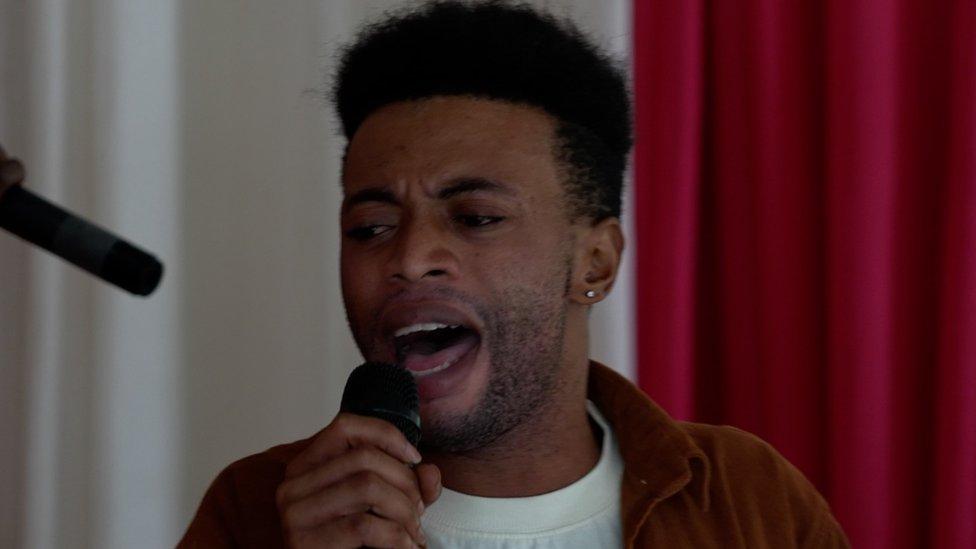
Patrick Uwayezu says LGBT people often find it hard to access services like healthcare in Rwanda
During our six-day visit we repeatedly asked for an interview with the government. Although a spokesperson agreed to do it, the promised interview never materialised.
We did however get a statement in which a spokesperson said: "Discrimination in all its forms is outlawed by our constitution and Rwanda is welcoming to everyone."
It added that the UN's position was "clearly contradictory" as it criticised Rwanda while still sending asylum seekers to the country, including more than 100 from Libya earlier this year.
But responding to the London High Court ruling that the UK government's plan was legal, the Rwandan government welcomed the decision and said it stood "ready to offer asylum seekers and migrants safety and the opportunity to build a new life in Rwanda".
There are also refugee success stories in Rwanda. Teklay Teame arrived here from Eritrea almost 25 years ago, in 1998.
He now runs a chain of wholesale shops and supermarkets.
His staff are busy unloading a truck with big boxes and carrying them into one of his many shops when I meet him.
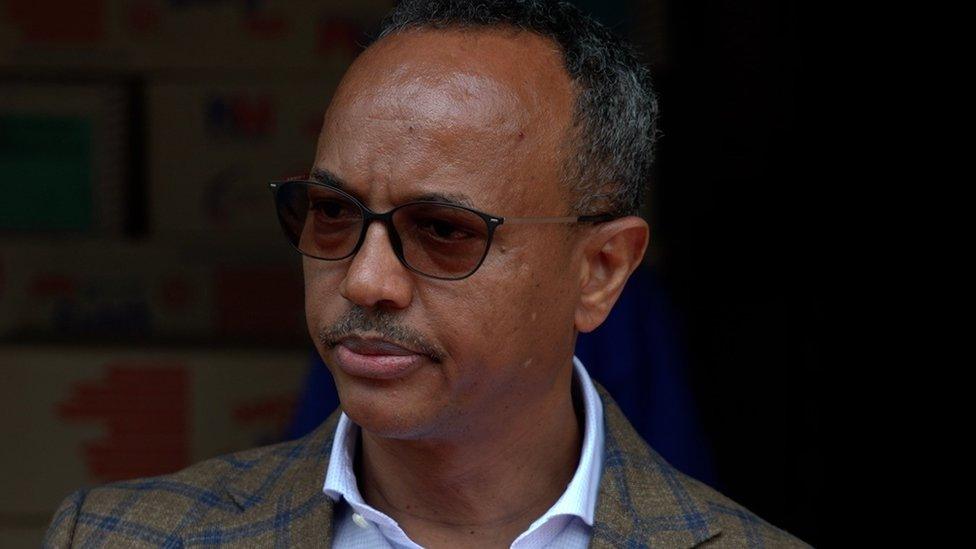
Teklay Teame came to Rwanda from Eritrea in 1998
"When I arrived here, everything was new to me. But the people were so friendly it didn't take me long to integrate. I started with four staff. Now I have more than 600," he says.
Unlike many refugees, Mr Teklay had the money needed to start up his business.
Still, he says, Rwanda offers opportunities for all, as long as you play by the rules.
Mr Teklay says he knows Eritreans who "came here with nothing as refugees. But they've started their own life and businesses."
I ask him if he understands the fears of those opposed to the plan to send asylum seekers from the UK to Rwanda.
"I don't know what they're afraid of, but I don't see any need to be afraid here," he replies.
The view as the sun sets over Kigali is spectacular: a bright red sun disappearing behind lush green hills.
Both the traffic and city below are orderly and efficient, something countries around the world would envy.
Those who opposed the UK government deal had said that beneath the surface lies a real sense of fear.
That is why - as was widely expected - opponents to this plan are likely to appeal.
It means the argument about whether Rwanda is safe for those seeking refuge will not end today.
Related topics
- Published13 June 2024
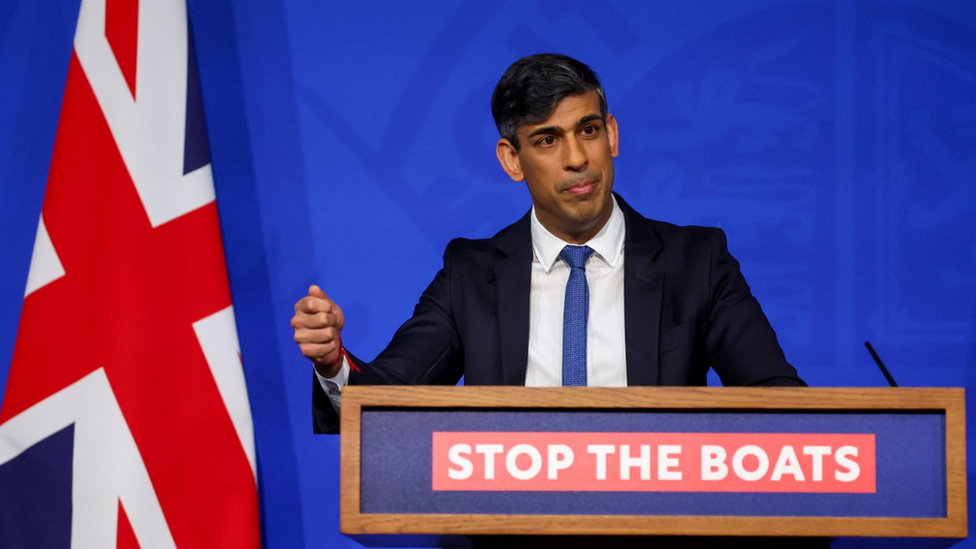
- Published14 April 2022
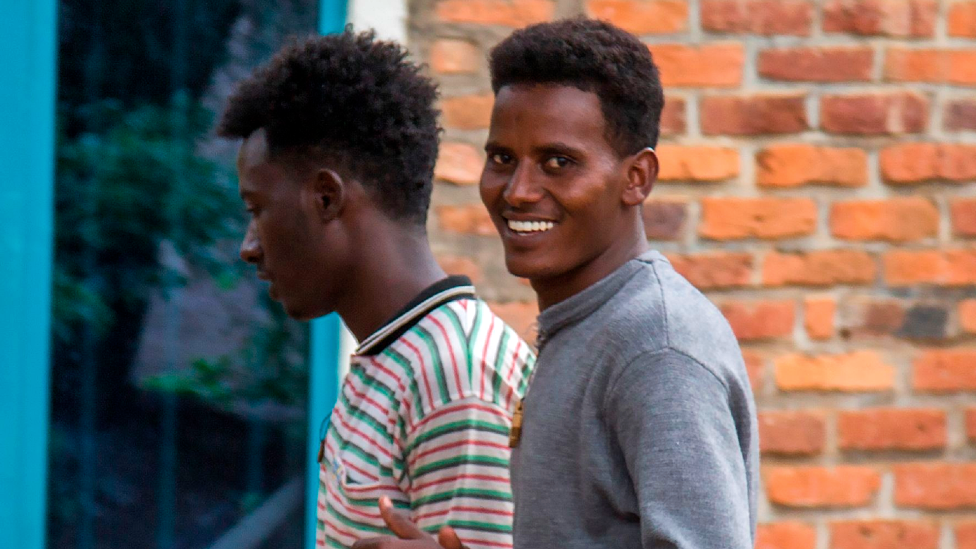
- Published13 December 2023
